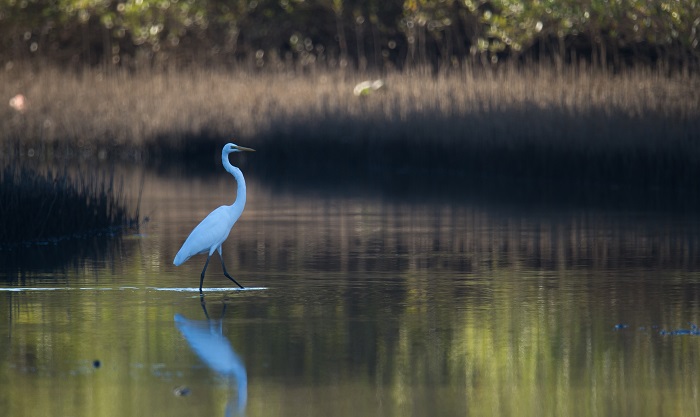The Qurum Natural Reserve in Muscat, Oman, is the oldest and most important reserve in the Sultanate. It covers an area of 1,045,775 square meters and was declared as a reserve in 1975. This reserve showcases Oman’s dedication to protecting the environment and natural resources while contributing significantly to biodiversity conservation by providing a haven for many rare organisms and plants. Located in Bausher in Muscat Governorate, it forms part of the Wadi Adai area and is home to Avicennia (mangroves trees). In 2013, the Qurum Natural Reserve gained global recognition as the first reserve of global importance in Oman when the Sultanate joined the Ramsar Convention on Wetlands.
The establishment of the Qurum Natural Reserve was aimed at preserving its natural value and biodiversity, protecting the mangroves, resident and migratory birds, and their habitats, and ensuring sustainable and environmentally sound management of the surrounding area to promote eco-tourism. The reserve is a vital habitat for Avicennia marina mangroves, the only species adapted to the Omani environment, covering an area of approximately 60 hectares with tall, healthy trees along the coasts in the eastern and western water channels. Additionally, the reserve includes 26 species of halophytic plants that have adapted to the Omani climate, providing a rich environment for wildlife and marine life.
In addition to its importance in providing habitats for various marine and wildlife organisms, the Qurum Reserve is classified as a wetland, serving as one of the richest and most diverse ecosystems. Mangrove forests play a critical role in acting as a natural security against floods, protecting coastlines from erosion and mud build-up, and stabilizing sediments to enhance beach stability. Visitors to the reserve can partake in activities such as boating, walking on boardwalks through the mangrove forests, and observing the diverse bird species that call the reserve home.
The Qurum Reserve is not only a destination for eco-tourism but also serves as a valuable spot for educational tourism, allowing students and enthusiasts to study and learn about the unique environment and its importance. Muscat Governorate supports efforts to ensure the sustainability of this ecosystem, promote sustainable tourism, and provide an exceptional tourism experience that aids in preserving the environment for future generations. The Ramsar Convention, which Oman joined in 2013, aims to protect wetlands from deterioration and enhance their ecological functions, economic contributions, cultural significance, and recreational opportunities. Wetlands include a variety of environments impacted by water, such as swamps, coastal areas, rivers, lakes, and mangroves, all of which play a vital role in biodiversity conservation and environmental protection.








